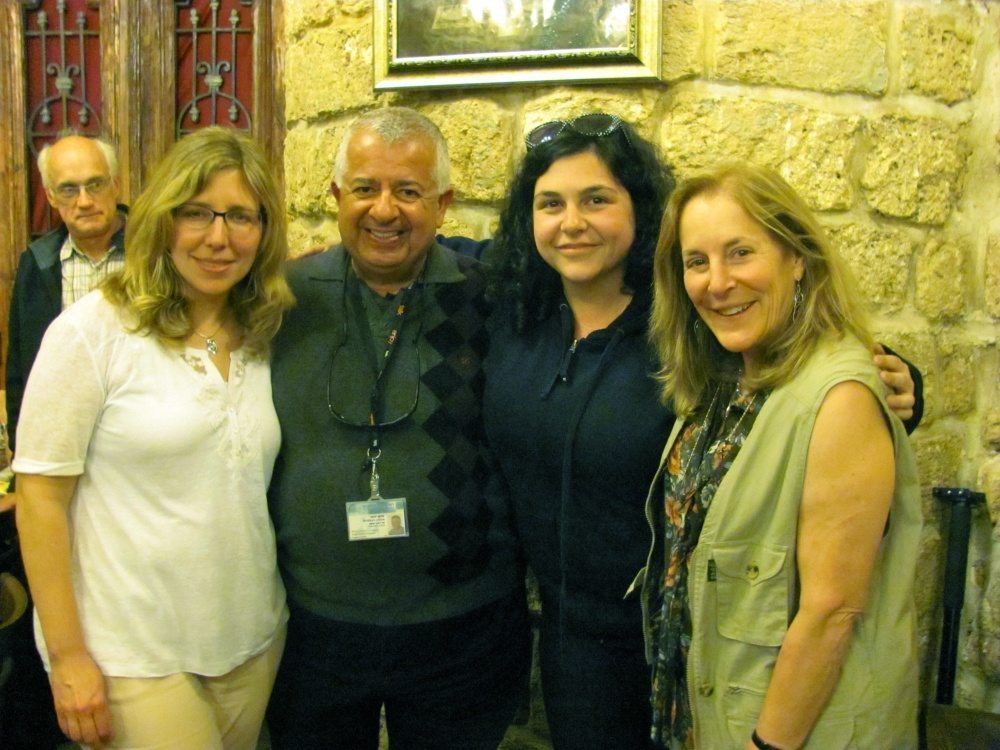Reflections on the Ride Home
In her essay, “Split at the Root: An Essay on Jewish Identity,” Adrienne Rich recalls sitting alone in a theater watching films of the allied liberation of the Nazi concentration camps. Rich writes, “I had to try to figure out by myself what this did indeed mean for me. That I had never been taught about resistance, only about passing. That I had no language for Anti-Semitism itself.” Adrienne Rich passed on 3/27, at the beginning of our journey. A prolific writer, Rich’s work often reminds us of the power words can have to connect the personal and political.
As we leave Abulafiya’s in Jaffa and head towards the Ben Gurion airport, it is hard not to think about all the different names, languages, and histories swimming around inside our heads. How do we bring these stories, bodies, and landscapes back into our classrooms when we emerge at JFK twelve hours later?
It feels strange to think that hours earlier, in a conference room at the Tel Aviv Ministry of Education, we shared two words that we were “holding with us” on the trip. We collected two words (the same ones or new ones) on the plane home. These words seem to be symbols of what we carry home, what we’ve discovered lurking within our own pedagogical practices, and what we want to find in our own classrooms. To return to Adrienne Rich, this time her 1983 essay titled “Resisting Amnesia:” “History is not something we can take or leave: some representation of it is always being made to us under the guise of art or entertainment; some selected image of the past is always being delivered to our senses…” In the airport, in the restaurant, on the bus, on the streets, it is clear to us now that history is everywhere and taught differently in every school—our job is how to bring the experience we’ve had home, to help our students find their meanings in the images we saw and the words we heard.
And, then there are our words:
Future
Hope
Obligation
Teaching
Rebirth
Education
Contemplation
Activism
Our Humanity Saved
It Continues
Learn—Live—Trust
Responsibility
Stories
Strength
Dichotomy
Chamsa
Resilience
Possibilities
Remember (the past), Live (in the present), Trust (the future)
Shalom
Perspectives
Community
Questions
Power of Place
Complexities
“Not Enough”
Family
Challenging Contradictions
Connection to Culture
Sad, Yet Hopeful
~Sondra, Jennifer, & Erica


